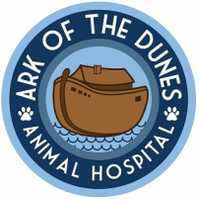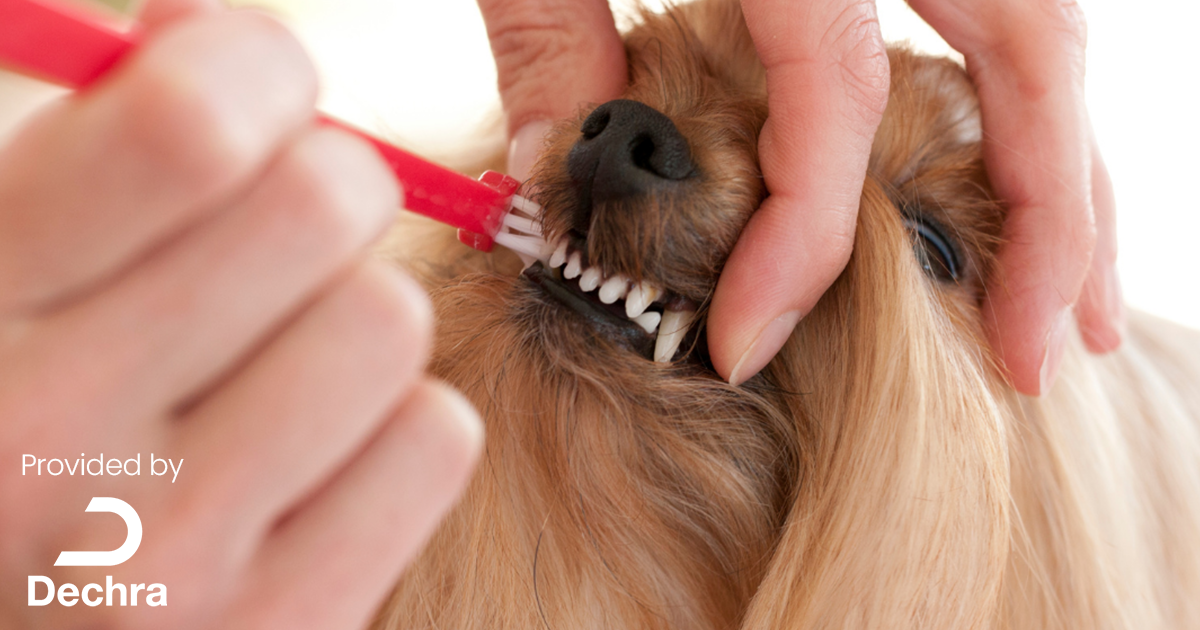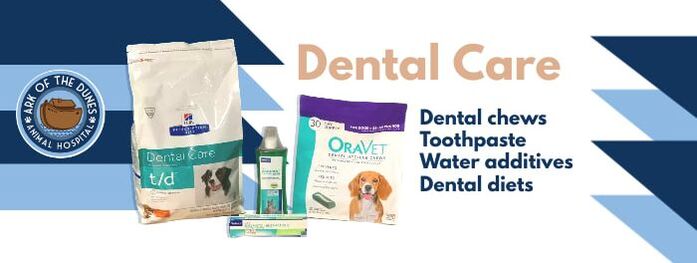February is National Pet Dental Health Month!
According to the AVMA, 80% of dogs and 70% of cats have some level of dental disease by age 3. Dr. Andrea wants pet owners to know that "dental disease can cause a lot of other organ-related side effects, contributing to heart disease, renal disease, and kidney disease. But it can also cause local pain for your pet, affecting their daily life." Oral Health Begins at HomeThe good news is, dental disease is usually preventable and treated with regular dental care, which includes at home and professional care. From the time you bring your new pet home, you can start to build healthy dental care habits. The gold standard is regular tooth brushing, and you can also supplement or substitute with other oral health products that are certified by the Veterinary Oral Health Council.
Pet Tooth Brushing Tips:
Studies have shown that brushing your pet's teeth three times a week is generally enough to maintain healthy teeth and gums, but to really control existing gingivitis and mild dental disease symptoms, daily brushing is necessary. Additions (or alternatives) to toothbrushingDental Chews and Treats
Dental chews usually have a chewy or light but crunchy texture that helps scrub away plaque up to the gumline. These are a great daily supplement for your pet's oral health in between brushings. At Ark of the Dunes, our favorite type of dental chew for dogs is the ORAVET Dental Hygiene Chew, because it also contains delmopinol, which is a plaque-fighting ingredient that coats the teeth and creates a barrier that helps prevent bacterial attachment. Some patients have success maintaining a healthy smile with an Oravet chew about every 3 days. They're hypoallergenic and great for even our most sensitive patients. Water Additives By adding a capful of a dental water additive like C.E.T. Aquadent Dental Solution to your pet's water, you can take advantage of breath-freshening properties as well as plaque control even if your dog doesn't take to chewing very well. Dental Diets Some pets may do well with a specific dental diet, either a prescription or non-prescription formula. Kibbles are formulated for dental care by being extra large so that the pet has to chew them, and they are made with lots of crunchy fiber that the teeth sink into, scraping off plaque. Some animals don't like the bigger kibbles as much, but they can be supplemented as treats. Keep in mind that the chewing teeth will get the most benefit from these diets, and the canine and incisor teeth won't receive much scraping action, so additional dental care is required. Ask us about your pet's oral health at your next visit! Useful links for more information: American Veterinary Medical Association: https://www.avma.org/resources-tools/pet-owners/petcare/pet-dental-care VOHC: Veterinary Oral Health Council (vohc.org)
1 Comment
|
Give your pet the healthy life they deserve.We update our blog to bring your educational materials that expand your knowledge and give you in depth background to help you understand your veterinarian's recommendations and give you tools to care for your beloved companions. ArchivesCategories |
|
Ark of the Dunes Animal Hospital 135 E. 1100 N. Chesterton, IN 46304 (219) 926-9797
For emergencies during off hours please refer to the Emergency Veterinary Care Centers Located at 1645 U.S. 421 Westville, IN 46391 Phone: (219) 785-7300 |




 RSS Feed
RSS Feed